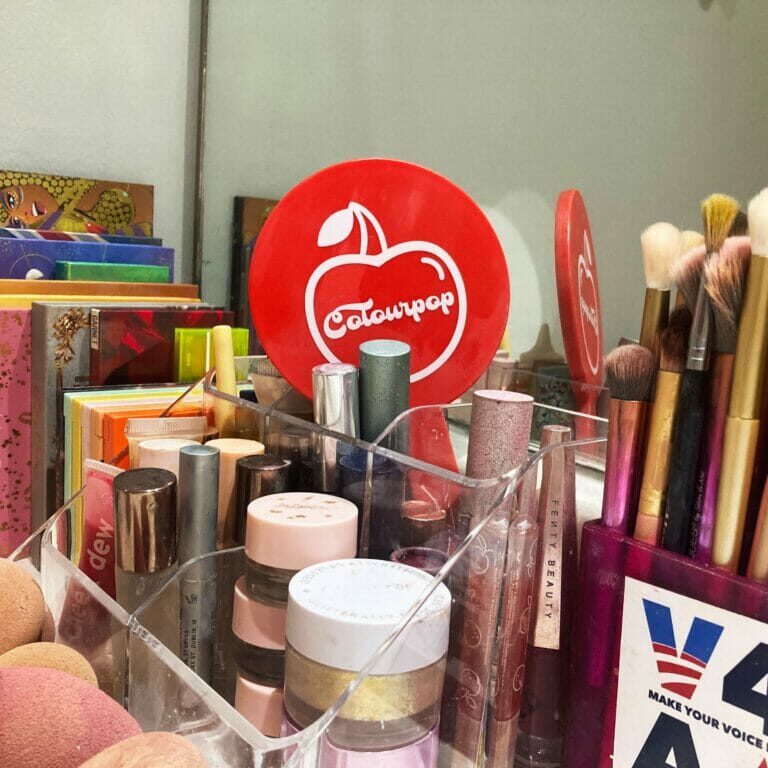
There’s a face behind that filter
The impossible beauty standards of social media
The age of social media has dawned the age of superficiality. Thanks to influencers, there is an uptick in people pretending to be someone else on the internet.
There’s something to be said about taking pictures of food that looks pretty but tastes bad or going to a cool spot in town and pretending you’re on vacation, but those things are harmless.
The real danger is the length people go to look like somebody else – we need to talk about catfishing.
Filters and picture-perfect presence
Image-based social media, like Snapchat, Instagram and TikTok, coined the use of selfie filters. Photo editing apps, like Facetune, have also made a place in social media photography. They’re an easy way to hide your insecurities from followers.
As someone who’s struggled with acne since I was 10 years old, and body dysmorphia before that, I’ve used Facetune to edit my photos. Nothing crazy, just a blurring effect here and a thigh trim there. Something that looked natural enough to be the real me, but, in my mind, looked like a better version of me.
Filters, however, go beyond this natural touch-up. Some filters are obvious, with flowers, cat ears or butterflies framing the face. Some are meant to make you look “perfect.”
There’s a TikTok trend right now, where a person shows their face with the blurring, eye brightening, cheek lifting filter applied. The audio accompanying the filter usually says something like, “Apparently, this filter shows how your face would look if it was perfect.”
This idea of perfection comes with a designated set of beauty standards. It’s one thing to have beauty standards within your region but another to feel obligated to meet some level of global standard. People who feel like they don’t meet the global, Instagram model standard may feel outcast into an “ugly” category. There seems to be no in-between online, you’re either beautiful or you’re not.
Children are also made to believe they must be perceived a certain way. It seems there’s more pressure to look like social media personality, Charlie D’Amelio, than there is to eat your veggies these days. Kids are already vulnerable to distortions of self-image; they don’t always know the difference between filters and reality like adults do.
Making filters a reality
Filters have such an impact on the way we’re perceived, by ourselves and others, that people have been getting plastic surgery to look like them.
According to the American Society of Plastic Surgeons, there has been a 938 per cent increase in cheek implant procedures, an 84 per cent lip augmentation increase and a 231 per cent dermabrasion increase (to give you that smooth filter look) since 2000. Most of these increases happened between 2016 and 2020 – especially in 2020.
For those who can’t afford plastic surgery, makeup trends focus more and more on changing your face shape, rather than enhancing your features. Highlighting and contouring are perfect examples. These trends also began growing in popularity when filters become the norm on social media feeds.
I follow people who won’t even post a photo unless there’s a filter on it. I see the appeal in looking a certain way to impress followers and feel better about yourself, but where is the line?
I think the line needs to be drawn where people begin to feel they are unworthy without the filter.
I have caught myself scrolling through my feed, feeling down on myself for not looking like someone else. Should this be a concern if that person spends at least an hour putting on makeup to look like a different person?
I don’t want to look like that person, I just want to look like their makeup.
Makeup, self-expression and cultural fetishization
One alarming makeup trend I’ve noticed lately is changing facial features with makeup to the point of looking like another race.
This is a problem.
The fetishization of Black, Asian and Mediterranean features has led to heavily contoured noses, coloured contacts, illusions of upturned eyes, big lips and dark fake tan.
The Kardashians are often criticized for trying to look Black, or “Blackfishing.” They darken their skin, cornrow their hair, inject their lips, lift their cheekbones and get butt lifts – features often associated with Black culture and stigmatized by white people.
They wear falsified features without experiencing the history of discrimination. Sure, they’re raising Black kids, but with millions of dollars.
This is exploitation.
Self-expression is all well and good but carving your cheek bones to oblivion or modelling your makeup look after another race, dips into the realm of falsity and appropriation.
It might be time to remind ourselves that social media is fake. It’s not just a Tik Tok audio, it’s the truth.






